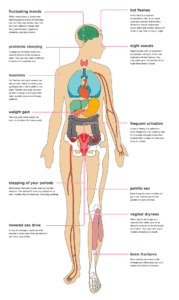People With Asthma May Not Have Higher Risk of Dying From COVID-19
Asthma May Not Increase the Risk of Death from COVID-19
Estimated Reading Time: 7 Minutes
Key Takeaways from the Latest Research
New findings published in the Journal of Asthma reveal that asthma does not significantly raise the risk of death from COVID-19. In fact, individuals with asthma may have a lower likelihood of contracting the virus compared to those without asthma—possibly due to increased vigilance and protective behavior.
Interestingly, some medications used for asthma treatment, particularly inhaled corticosteroids, are being explored for managing COVID-19 symptoms in people without asthma.
What the Experts Are Saying
Researchers at The George Institute for Global Health (University of New South Wales) concluded that having asthma does not correlate with a higher mortality risk from COVID-19. Their meta-analysis, involving a broad range of studies, found that people with asthma were actually 14% less likely to get infected than the general population.
Analysis of Over Half a Million Cases
In a comprehensive review of 57 studies covering more than 587,000 COVID-19 patients, only about 7% had a history of asthma. The data, shared in Journal of Asthma (February edition), also indicated no increased risk for severe illness or hospitalization among asthmatics—including those with other underlying health conditions.
Asthma and Hospital Outcomes: No Clear Link
A study conducted in New York City on hospitalized patients under 65 years of age found no evidence that having asthma worsened COVID-19 outcomes. This remained consistent across different demographics and health profiles, including obesity and other comorbidities.
The Mystery Behind the Protective Trend
Dr. Bita Nasseri, a cardiothoracic anesthesiologist and co-founder of Euka Health, acknowledged that while asthma typically worsens outcomes for respiratory illnesses like influenza, this hasn’t been the case for COVID-19—and the reason remains unclear.
Why Flu Impacts Asthma Patients Differently
Dr. Kunjana Mavunda, a pediatric pulmonologist and former public health director, explains that viruses such as the flu can trigger asthma symptoms through airway inflammation, excessive mucus production, and bronchospasms—mechanisms that haven’t shown the same effect in COVID-19.
Past Coronaviruses Show Mixed Results
Notably, children with asthma did not experience worsening symptoms during the 2002–2004 SARS outbreak. However, research published in the International Journal of Infectious Diseases in 2017 linked chronic lung diseases—including asthma—to higher mortality during the MERS epidemic.
What This Means for People with Asthma
While having asthma might not automatically place you in a high-priority group for COVID-19 vaccines, leading organizations such as the Allergy & Asthma Network still advise vaccination at the earliest opportunity. Encouragingly, new data indicates that asthma does not significantly raise COVID-related risks.
Behavioral Precautions Could Explain Lower Infection Rates
The February study published in the Journal of Asthma suggests that heightened concern among asthmatics may have led to more consistent preventive behavior, including better adherence to medications and reduced exposure to potential infection sources.
Improved Medication Adherence During the Pandemic
A separate study in The Journal of Allergy and Clinical Immunology found that people with asthma and COPD became more diligent in following their medication regimens during the pandemic, potentially leading to better symptom control and fewer hospital visits.
The Role of Inhaled Corticosteroids
These medications are central to long-term asthma management and help reduce inflammation in the airways. Some evidence suggests they may offer a degree of protection against COVID-19 by moderating the body’s immune response. However, high doses can suppress the immune system, so doctors recommend using the lowest effective dose.
Corticosteroids May Benefit Non-Asthmatic COVID Patients
Preliminary studies suggest that budesonide, a commonly prescribed asthma medication, may help reduce recovery time and lower the chance of hospitalization in COVID-19 patients—even among those without any respiratory conditions.
Weighing the Pros and Cons of Steroid Use
Dr. Nasseri points out that while corticosteroids are effective in reducing lung inflammation, they must be carefully managed to avoid suppressing the immune system. In proper doses, they appear to help reduce COVID-related lung complications.
Continue Your Asthma Treatment Plan
Dr. Mavunda strongly advises asthma patients to stay consistent with their medication routines, even if they feel well. Preventive treatments like inhaled steroids can minimize complications if COVID-19 is contracted.
COVID-19 Safety Measures for Asthma Patients
Although asthma does not appear to increase COVID-19 mortality risk, individuals with moderate to severe asthma may still face higher chances of serious illness. The CDC recommends the following safety practices:
-
Stick to your personalized asthma action plan
-
Take your medications as prescribed
-
Avoid environmental and lifestyle triggers
-
Maintain a 30-day supply of medications
-
Contact your doctor promptly if symptoms develop
-
Have someone else in the household handle cleaning and disinfecting tasks
Stay Informed with the Latest Updates
Information in this article is based on data available at the time of writing. For the most current guidance and COVID-19 developments, consult reliable sources such as the CDC or WHO






